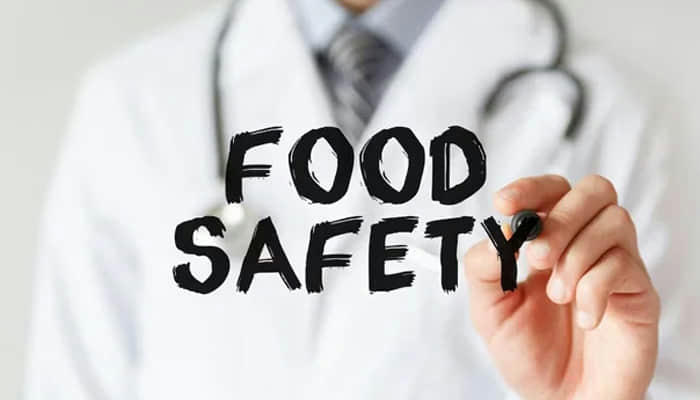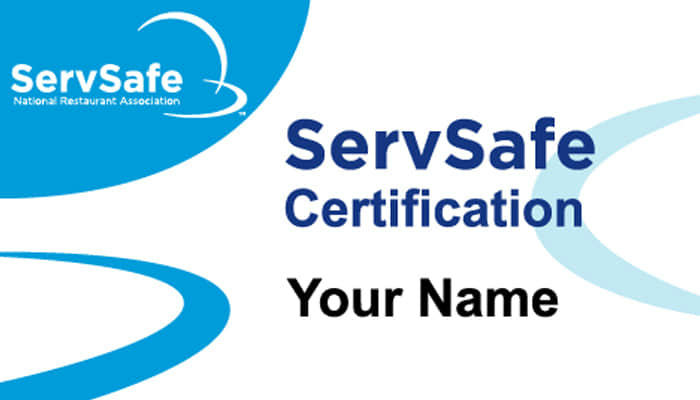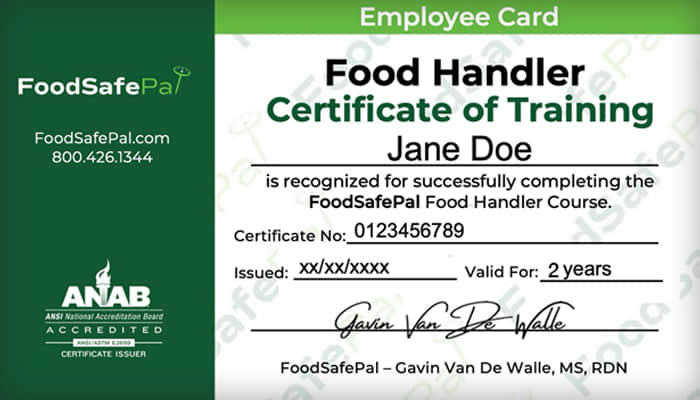Mastering Food Safety: Your Guide to Online Certification!

In today's food service industry, obtaining food safety certification is essential for professionals ensuring the safe handling and preparation of food. With the advent of online education, acquiring these certifications through digital platforms has become increasingly popular and convenient. This article explores key aspects of online food safety certification.
What is Food Safety Certification?
Food safety certification verifies that individuals possess the necessary knowledge and skills to handle food safely in various roles within the food service industry. This certification is critical for ensuring compliance with health and safety regulations and reducing risks associated with foodborne illnesses.
Why Pursue Food Safety Certification Online?
Online food safety certification offers flexibility and accessibility, allowing professionals to complete training at their own pace and convenience. This method eliminates the need for traditional classroom attendance, accommodating busy schedules and enabling learning from any location with internet access.
Types of Certifications
There are several types of food safety certifications tailored to different roles:
Food Manager Certification
Role: Required for managerial positions overseeing food service operations.
Focus: Emphasizes comprehensive knowledge of food safety regulations, sanitation practices, staff training, and facility management.
Importance: Managers with this certification ensure that food handling practices meet legal standards, reducing the risk of contamination and promoting public health.
ServSafe Certification

Focus: Primarily focuses on safe food handling practices and sanitation procedures.
Content: Covers topics such as proper food storage, temperature control, preventing cross-contamination, and hygiene practices.
Application: Ideal for individuals involved in food preparation, including chefs, cooks, and kitchen staff.
Food Handler Certification/Card

Target Audience: Designed for frontline employees directly handling food, such as servers, bartenders, and line cooks.
Purpose: Ensures individuals understand basic food safety principles, including personal hygiene, safe food handling techniques, and maintaining a clean work environment.
Requirement: Often mandated by local health departments for anyone involved in food preparation or service.
Choosing the Right Certification
Research: Determine the specific certification required by your job role and local regulations.
Accreditation: Ensure the certification program is accredited by reputable organizations like the National Restaurant Association (ServSafe) or state health departments.
Cost and Duration: Consider the cost of the certification course and any renewal fees, as well as the duration of the training program.
Accreditation and Cost
When seeking an online food safety certification program, two critical factors to prioritize are accreditation and cost. Accreditation ensures that the program meets established standards set by reputable organizations such as the National Restaurant Association or the American Culinary Federation. This endorsement not only validates the quality and relevance of the education but also enhances your credibility in the industry.
Accredited programs undergo regular evaluations to maintain educational excellence, ensuring they prepare students effectively for real-world scenarios in food safety. Employers often prefer candidates with accredited certifications due to their assurance of compliance with industry standards and regulatory requirements.
In terms of cost, it's essential to consider the total expenses involved, including registration fees, study materials, and examination costs. Some programs may offer discounts for bulk purchases or financial aid options to make certification more accessible. Evaluating the overall value for money is crucial—look for programs that provide comprehensive learning resources, access to knowledgeable instructors, and interactive tools like simulations or case studies.
Choosing an accredited program with reasonable costs not only ensures that you receive quality education but also maximizes your investment in career advancement within the food service industry. These considerations play a significant role in selecting the right online food safety certification program to meet your professional goals and regulatory requirements effectively.
Benefits of Online Certification

Convenience
Online food safety certification offers unparalleled convenience. Learners can study from anywhere with an internet connection, allowing flexibility to manage coursework alongside personal and professional responsibilities. Whether you're a busy professional or a parent, online learning enables you to access study materials and complete assignments at your own pace and schedule.
Interactive Learning
Many online certification programs integrate interactive features such as quizzes, simulations, and multimedia presentations. These tools enhance engagement by providing hands-on practice and immediate feedback. Simulations, for example, allow learners to apply theoretical knowledge in realistic scenarios, reinforcing understanding of food safety principles and procedures.
Support Services
Online programs often include robust support services to assist learners throughout their certification journey. Features like live chat, email support, and discussion forums are invaluable for clarifying concepts, addressing queries promptly, and connecting with instructors and peers. This support network ensures that learners receive timely assistance and guidance, fostering a conducive learning environment.
Accessibility and Flexibility
Online certification programs cater to diverse learning needs and preferences. They eliminate geographical barriers, enabling individuals from different locations to access high-quality education. Additionally, the flexibility of online learning accommodates varying learning speeds and styles, allowing learners to revisit challenging topics or accelerate through familiar content as needed.
Cost-Effectiveness
Online food safety certification programs often offer competitive pricing compared to traditional classroom-based courses. They eliminate costs associated with commuting, physical textbooks, and sometimes even provide discounts for bulk registrations or early enrollments. This affordability makes certification accessible to a broader range of professionals, promoting continuous professional development and career advancement.
In conclusion, the shift towards online food safety certification reflects a commitment to professional development and compliance with industry standards. With accessible training options, comprehensive coursework, and flexible learning environments, online certification is an ideal choice for food service professionals looking to advance their careers and ensure safe practices in food handling and preparation.
